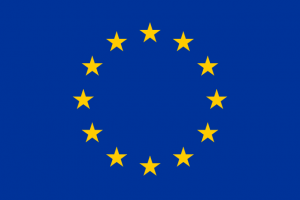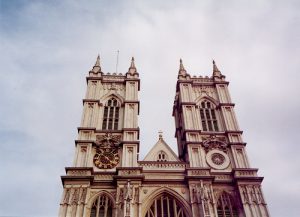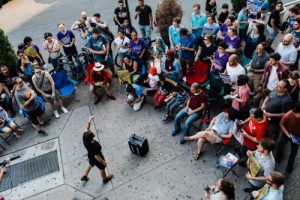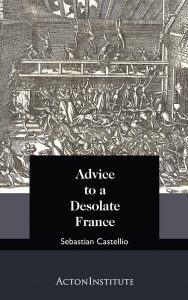


I’m a big fan of Touchstone’s blog and the posts of senior editor S. M. Hutchens in particular. A very deep guy. That’s why I was intrigued when I founda book review of his in the New Atlantis entitled "The Evangelical Ecologist" while googling myself (if that doesn’t sound too crude).*
He’s responding to E. O. Wilson’s The Creation: An Appeal to Save Life on Earth, in which Wilson
asks the imaginary Baptist pastor to whom the book is addressed to search his faith for reason to mon cause in earth-saving with Wilson’s own secular humanism, the dogmatics of which assert that “heaven and hell are what we create for ourselves on this planet.
Wade through Hutchens’ dialectic and what emerges is a fantastic insight into how easily the Church can be gripped by the humanistic evangelism of the environmental movement, where conservation of Creation is an end in and of itself, and God’s privilege to destroy and remake the earth es as much of an anethama to us as Peter’s revulsion to the Cross.
Get thee behind me, satan!
The Westminster Catechism "suggests" the chief end of man is to glorify God, but it’s pretty easy to find ourselves absorbed in thinking a green earth is an end rather than a means. Similarly, mon use of Psalm 24 to proclaim God’s ownership – and by extension, proclaim our stewardship – rarely sweeps us into verses 3-4 (only the pure in heart stand in God’s holy presence), let alone verses 7-10 (Who is this King of Glory? The Lord strong and mighty, the Lord mighty in battle…). But it should.
No, not should. It must, because He Is.
~
HE’S ALSO FOUND the spot that I couldn’t itch the past couple of trips to Boise. [Click and scroll down for my thoughts under Ed Brown’s lecture notes. db]. There I found myself among Christ-loving people who earnestly believe God would never, could never, destroy the earth as we know it to establish a New One, but instead wants the Church to serve and redeem the planet through our charitable stewardship.
Here’s Hutchens’ reaction to this sort of thinking:
Here, then, is the first inescapable offense Christianity gives to earth-piety: the earth as we know it empirically is not a final thing but a first creation. The second offense is that Christianity’s principal reason for the earth’s existence is to serve the cause of human redemption, to be defined and carried out not by what seems reasonable to man, but the purpose and method of God. The earth is presented to the faith as sacramental, and as sacrament its end is to be consumed so that a second and higher Creation e. Its end is as the end of man who has been made from and returns to its dust, who must pass away so the Second and Eternal Man can arise to take his place in a new heaven and earth, the old having passed away. It is difficult to exaggerate the breadth and depth of the chasm that exists between biblical religion and earth-piety.
Thinking of the earth (and all those bullocks!) as a sacrament to be consumed might jive with the Old Covenant but doesn’t exactly lash up with John 3:16, where Christ’s sacrifice is by definition substitutional and given for "the world." And what about those who never returned to dust? Will Enoch or Elijah single-handedly keep Christ from assuming the throne? Not likely.
Regardless of which perspective you take on God’s ultimate intent for the planet just chewing on both is pretty humbling. It gets me to my knees in an earnest prayer to ask for wisdom to do whatever He wants me to do with the earth today, that His will will be done. And maybe that’s the point of such an exercise.
In the end Hutchens offers a scriptural antidote ("Let me suggest that the rule for proper treatment of the biosphere contemplated by the scriptures is not based in consideration of biological life itself, but upon the law of love of God and neighbor…"), an encouraging word on the good to be gained when all men recognize God’s majesty in nature, a reminder that all things are ultimately governed by God’s will, and a warning that the tendency of humansim is invariably worship of creation rather than Creator.
I appreciated getting all four of these today. Absorb the whole article when you have some time.
______________
*No, in case you’re wondering, he didn’t ask me whether "The Evangelical Ecologist" was protected under a Creative Commons mercial-No Derivative Works 3.0 United States License [Exodus 20:15], or whether I thought it was o.k. to be associated with an atheist like E. O. Wilson. But hey – that’s what grace is all about, right?









